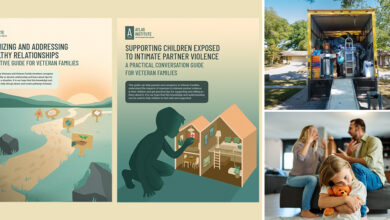Health and Wellness
The Importance of Self-Care
Self-describing as a caregiver leaves some individuals struggling with the definition. For those of us whose spouses are still serving members of the Canadian Armed Forces (CAF), the description doesn’t always seem apparent. Even if a member has been released from the CAF but has transitioned out of the forces into a new occupation, home life can become overwhelming without adequate support. There are tremendous amounts of resources available to ill or injured personnel and their families, but occasionally the schedules for participation in programs and services conflict with work or health constraints. Need cannot be dictated. Therefore, each individual and family member must determine what can work in their own home with their schedule.
We’re all guilty of not putting ourselves first; as parents, spouses, employees, employers, and caregivers. How many times have we gone to a store to buy our children a whole new wardrobe for school, picked out all the groceries that our family members prefer, and just accepted that even though we have needed a new pair of shoes, that ‘extra’ $50 might be needed for something else before the next pay-cheque comes in? Putting others before ourselves has become so natural that it’s often difficult to deliberately prioritize our own needs. It’s easy to regard other’s needs over our own and convince ourselves that putting ourselves first is an act of selfishness.
No one wants to be classified as selfish. It is culturally and socially more acceptable to be described as selfless. We justify our choice to put the needs of those around us first. We make lists in our head of need versus want and convince ourselves that we don’t necessarily need things that may be good for us. We feel guilty for even considering an hour away, or asking someone else to help. The fact of the matter is, every person deserves and requires good health practices. Ignoring or minimizing our own needs has the potential of negative consequences.
For those of us with a spouse who is ill or injured due to military service, our dedication shifts to assisting them in acquiring a manageable level of recovery. Whether the injury is physical or mental, a coordinated effort is essential between medical intervention and home support, and every effort made is a noble undertaking. Emotional exhaustion negatively influences physical abilities, and it is completely natural to feel overwhelmed by circumstance. Just as a wounded member requires time and supports to heal, integrating supports for family members as they adjust to the changes within their home are equally essential.
Notable supports offered to caregivers often decrease symptoms associated with stress and fatigue while increasing coping strategies for changes within the home. In order to prevent unhealthy practices, each person must recognize stress reduction strategies that may be easily integrated into your daily/weekly schedule. Just as there are preventative measures to avoid an Operational Stress Injury or physical injury, spousal symptoms of vicarious trauma won’t necessarily progress into a diagnosis of Compassion Fatigue. Resources include access to support counselling, participation in communication skills training, and education concerning best practice can assist greatly in maintaining health. Restoration of health is possible through minor adjustments in daily and weekly schedules.
When taking care of yourself, you become enlightened to what’s happening around you. Clarity of thought is important when trying to care for your family. If you plan for an activity and dedicate time to it each day, family members integrate this activity into their expectations. It can become your own self-care ritual, and because it is consistently part of the expected daily routine, it’s easier for you and your family to accommodate for your time. Just as children thrive with consistency, families also thrive. With an ill or injured member of the family within a home, there are often unexpected adjustments to be made, but understanding that self-care can be prioritized will help to encourage accommodating. It’s often easier for families to adjust to a small change in the schedule than for the person who is essentially heading the household to be gone for an entire day or longer.
A caregiver’s mental and physical health are equally important to that of the individual for whom they care. Recognizing and verbalizing your own needs will assist in positive health and communication practices while limiting the potential of resentment from others. Every illness or injury requires lifestyle changes to promote recovery, so focusing on family health as a priority will help each individual to find necessary holistic benefits.
Visit Caregivers Brigade website for more resources.











